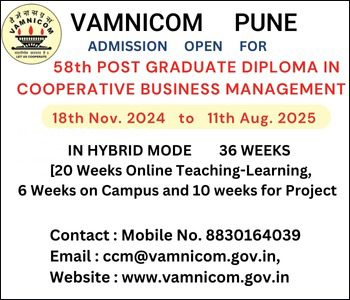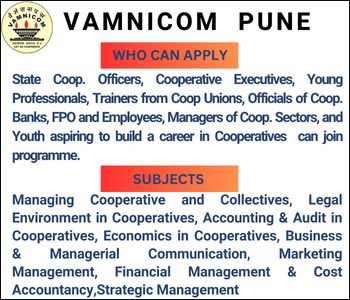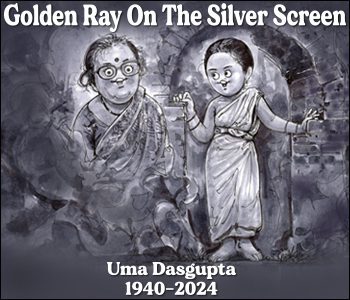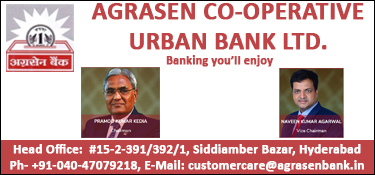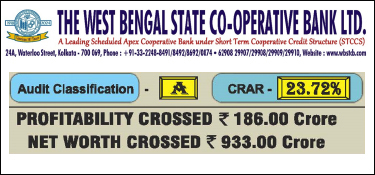Cooperative fraternity burst into jubilation on the news of passing of Constitution (111th) Bill, 2009 on Thursday by Lok Sabha. Apart from other things, the fact that forming cooperative has acquired status of Fundamental Rights gave shot in the arms of cooperative leaders.
“It is history in making” quipped Chandra Pal Singh Yadav, President of National Cooperative Union of India, the apex cooperative body in the country. We thank Sharad Pawarji and all 390 MPs who unanimously passed the bill, he added.
The Constitutional amendment bill aims at bringing uniformity in cooperative societies in terms of election , tenure and composition(one woman and one from SC/ST) of cooperative societies.
We welcome it. Country has realized the need for vibrant cooperative movement, was the massage from Shri Uday Shanker Awasthi, Managing Director of IFFCO which is a federation of more than 40 thousand cooperative societies across the nation.
Shri G N Saxena,Director of Cooperative Development at IFFCO was euphoric at forming cooperatives being elevated to the rank of Fundamental Rights.
Eknath Thakur, another cooperative giant in the field of Urban Cooperative Banks and Chairman of the largest Urban Cooperative Bank, Saraswat welcomed the news and said that this bill would strengthen the cooperatives at grass root level.
Birendra Singh, Chairman of NCCF said that election provision of new bill would usher in transparency and professionalization in cooperative set up. It is result of our hard work as we went twice before Standing Committee for an effective Bill, he added.
Cooperative leaders cutting across sector are happy with the news as some feel that high handedness of state political bosses would no more weaken cooperative movement. Example of Tamil Nadu is case in point where election has not taken place for last 29 years.
Other highhandedness such as reducing or increasing the tenure of board to suit political expediency as Mayawati did in case of Uttar Pradesh would also be a thing of past.
The bill also proposes Annual General Body meet once in a year thereby correcting the practice especially in States of not calling AGM for 10 years or more.






